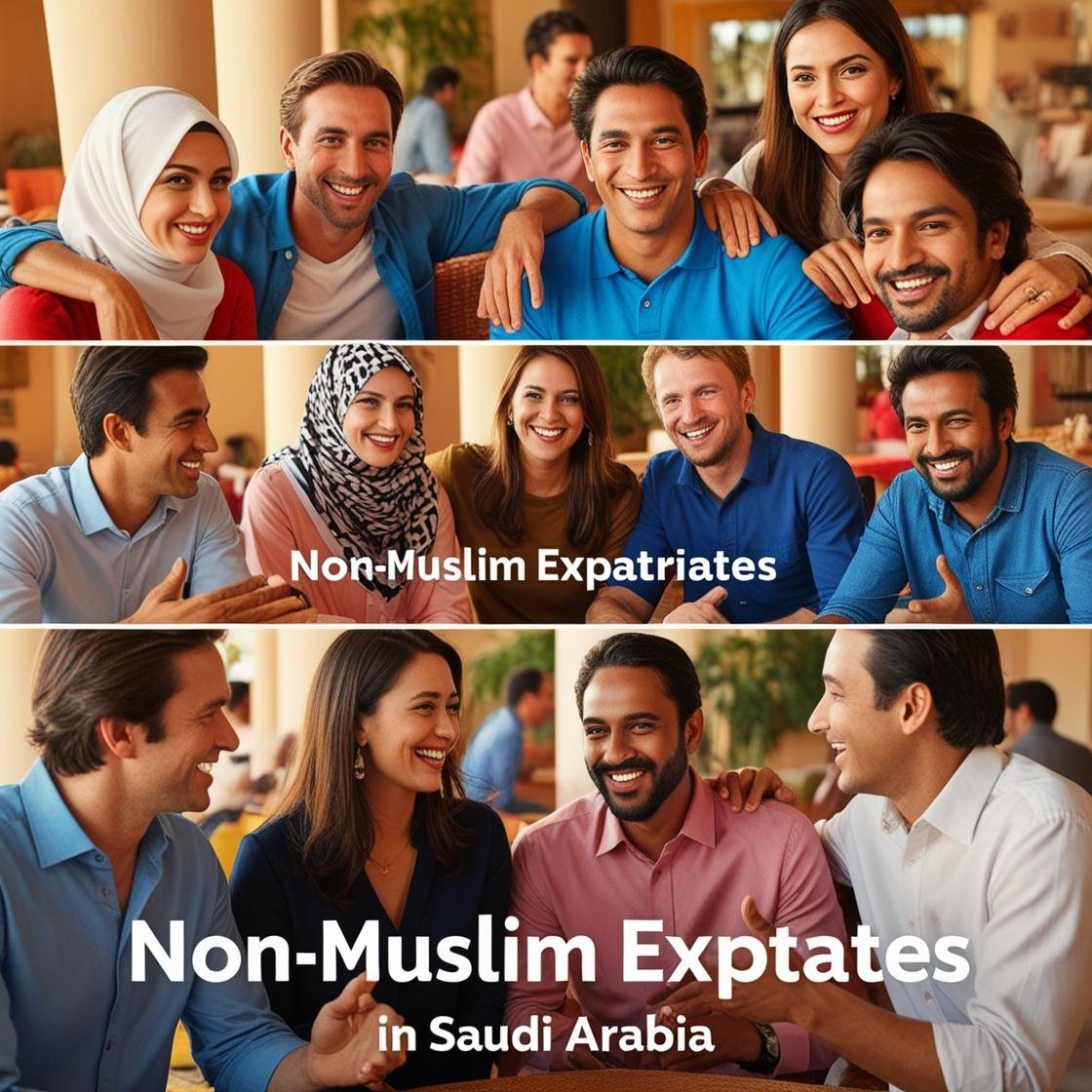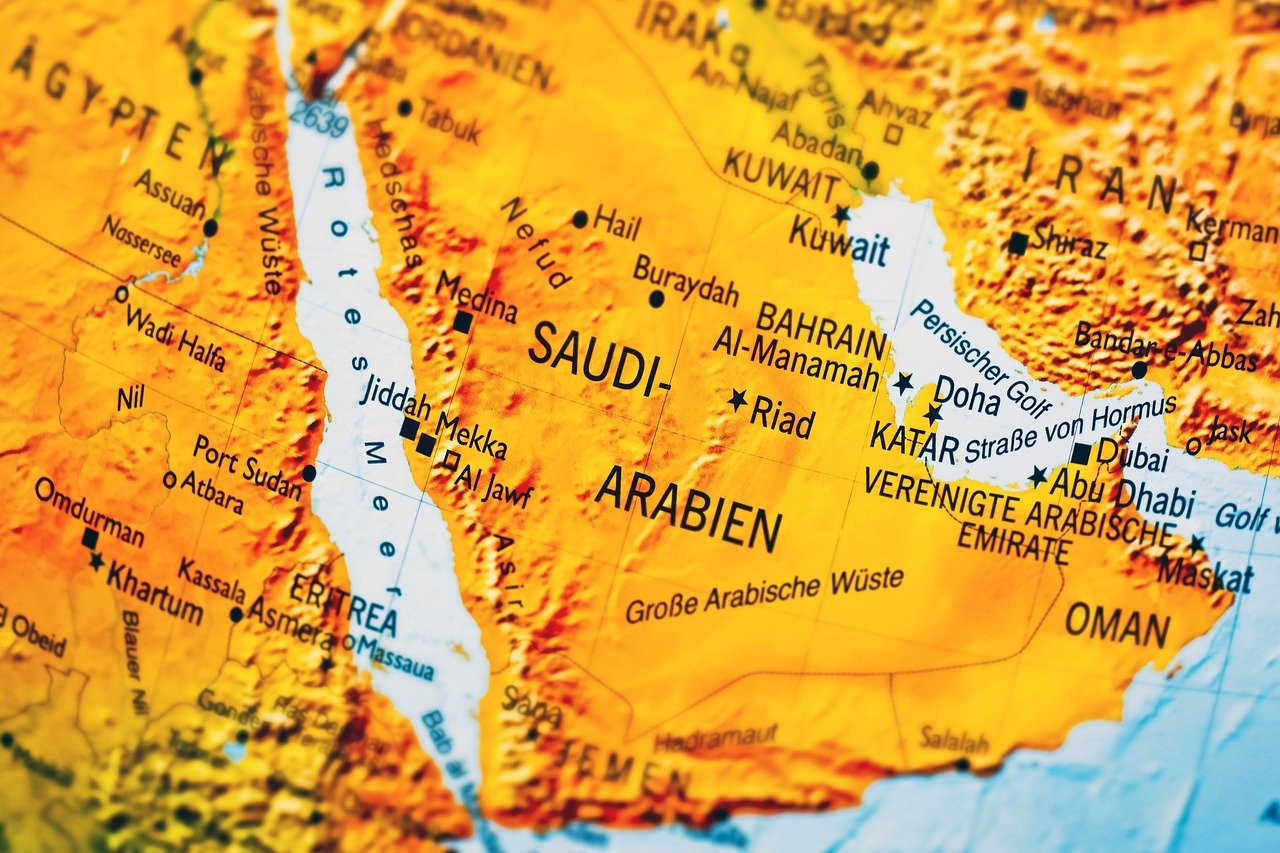Saudi Arabia, with its rich history, cultural depth, and commitment to tradition, presents a unique environment for those who live and work there. For non-Muslims, adapting to life in the Kingdom can be both rewarding and challenging, as the country’s deeply rooted customs and laws are strongly influenced by Islamic principles. In recent years, reforms have made life more inclusive and flexible for foreigners. Yet, understanding and respecting cultural norms remains crucial. This article provides a detailed guide on what it’s like for non-Muslims to navigate life in Saudi Arabia, with practical insights on customs, religious practices, social expectations, and modern advancements.
1. Religious Practices and Restrictions
- Absence of Public Worship: Saudi Arabia does not permit public displays of non-Muslim religious practices. There are no churches, temples, or other religious buildings for non-Muslim worship. However, non-Muslims may worship privately in their homes. Foreigners should be respectful of these restrictions to avoid legal consequences.
- Holy Sites and Restrictions: Certain cities, such as Mecca and Medina, are off-limits to non-Muslims, as they hold special significance in Islam. The roads leading to these cities are marked, and non-Muslims should ensure they respect these boundaries.
2. Social Norms and Etiquette

- Clothing and Dress Code: Saudi Arabia has gradually relaxed its dress code in recent years, especially in major cities like Riyadh and Jeddah. Women are no longer required by law to wear an abaya (a traditional full-length black cloak) but are still expected to dress modestly, covering shoulders and legs. Men should also avoid wearing shorts in public areas, as modest dressing is appreciated across genders.
- Public Displays of Affection (PDA): Non-Muslims should be aware that public displays of affection, such as holding hands or kissing, are considered inappropriate in Saudi Arabia and may attract attention from authorities.
- Alcohol Consumption and Availability: Alcohol is strictly prohibited in Saudi Arabia, and its possession or consumption is illegal. This rule applies to non-Muslims and Muslims alike. Violating these laws can lead to severe penalties, including imprisonment and fines.
3. Gender Segregation and Interaction
- Segregated Spaces: Many restaurants, cafes, and public spaces used to be separated into “family” and “single” sections. This segregation was enforced to keep men and women from mingling. Recent reforms have relaxed this rule in many places, especially in large cities, but it’s still worth noting that some establishments may adhere to traditional layouts.
- Workplace Dynamics: In workplaces, interactions between men and women are becoming more relaxed, especially as Saudi Arabia encourages women to enter the workforce. However, non-Muslims should still maintain a respectful and professional demeanor, as cultural sensitivities remain in place.
4. Navigating Public Holidays and Religious Observances
- The Month of Ramadan: Non-Muslims living in Saudi Arabia experience the holy month of Ramadan differently. During Ramadan, Muslims fast from dawn to dusk, and eating, drinking, and smoking in public during fasting hours is prohibited, even for non-Muslims. Most restaurants are closed during daylight hours, and it’s respectful to avoid eating or drinking openly.
- Eid Celebrations: After Ramadan ends, Muslims celebrate Eid al-Fitr, and later in the year, Eid al-Adha. These are festive times, and foreigners are often welcomed to join celebrations, enjoy traditional foods, and experience Saudi hospitality.
5. Entertainment and Social Life
- Recent Changes and Entertainment Venues: Saudi Arabia has recently expanded its entertainment offerings with cinemas, concerts, sporting events, and even international festivals. Non-Muslims can enjoy many of these cultural events and are encouraged to participate, as the government promotes cultural integration.
- Social Gatherings and Invitations: Saudis are known for their hospitality, and non-Muslims may find themselves invited to family gatherings or social events. Accepting an invitation is a sign of respect, and it’s a chance to experience Saudi traditions firsthand, from tasting traditional dishes to engaging in cultural practices.
6. Business Practices and Work Culture
- Understanding the Weekend: The official weekend in Saudi Arabia is Friday and Saturday, with Friday being a day of prayer. Many businesses close for prayer times, especially on Fridays. Non-Muslims should plan accordingly and be aware of these timings.
- Cultural Sensitivity in Business: Saudi Arabia’s work culture places significant emphasis on respect and relationships. Non-Muslims working in Saudi Arabia should take time to understand social hierarchies and respect for authority, as these values are deeply embedded in Saudi business culture.
7. Housing and Living Arrangements
- Expats in Compounds: Many non-Muslims live in expatriate compounds, which offer a more liberal lifestyle and are less restrictive in terms of dress code and social norms. These compounds often have facilities like gyms, pools, and social clubs, allowing residents to connect and socialize more freely.
- Living Outside Compounds: While not as common, some non-Muslims choose to live in local neighborhoods. This can provide a more authentic experience but requires greater awareness of cultural norms. It’s advisable to dress modestly and respect local customs when outside of the compound environment.
8. Language and Communication
- Arabic and English Usage: Although Arabic is the official language, English is widely spoken, especially in urban areas, business settings, and expatriate communities. Learning a few basic Arabic phrases can go a long way in showing respect and enhancing communication.
- Cultural Greetings: The traditional greeting in Saudi Arabia is a handshake and often a slight bow of the head. For men and women, especially non-Muslim women, it’s advisable to let Saudis initiate physical greetings, as local customs can vary depending on the situation.
9. Legal System and Compliance
- Sharia Law: The Saudi legal system is based on Islamic law (Sharia), and it applies to everyone living in the Kingdom, regardless of religious affiliation. Penalties for violations of the law, particularly those related to public behavior, alcohol consumption, and narcotics, can be severe.
- Photography Restrictions: Taking photos of people, government buildings, military installations, or other sensitive areas is prohibited and can lead to legal issues. Always ask permission before taking pictures, especially in public or religious areas.
10. Health and Wellbeing
- Healthcare System: Saudi Arabia offers modern healthcare facilities with high standards. Non-Muslim residents can access both public and private healthcare, but it’s advisable to have health insurance, as private care is often more efficient and comprehensive.
- Mental Wellbeing: Adapting to a new culture can sometimes be challenging, and non-Muslims may find it beneficial to seek out social groups, expat networks, or counseling services available through compounds or embassies to ease the transition.
11. Modernization and Vision 2030
- Recent Reforms: Saudi Arabia’s Vision 2030 initiative, aimed at diversifying the economy and promoting cultural openness, has significantly impacted the lives of non-Muslims. From entertainment options to increased social freedoms, these reforms have made Saudi Arabia more inclusive and accessible to foreigners.
- Future Prospects: With continued modernization, the Kingdom aims to balance its rich Islamic heritage with the needs of an evolving society. This shift makes it an exciting time for non-Muslims to experience Saudi Arabia, as the country becomes more welcoming and open to diverse cultures.
Final Thoughts
Living in Saudi Arabia as a non-Muslim offers unique challenges and enriching experiences. The key to a positive experience lies in understanding and respecting the cultural and religious principles that guide everyday life. As the country embraces change and modernization, non-Muslims will find more opportunities to engage, explore, and appreciate Saudi culture. While certain boundaries remain, the nation’s evolving landscape allows for a richer, more inclusive experience for those willing to adapt and embrace life in the Kingdom.



